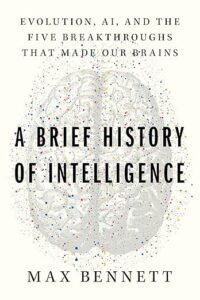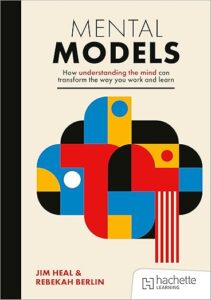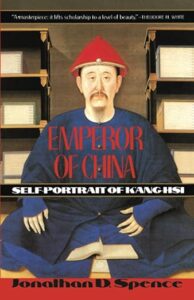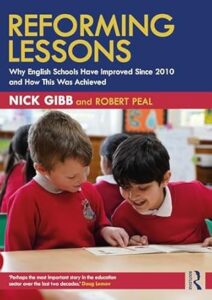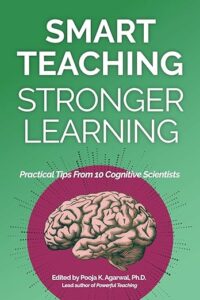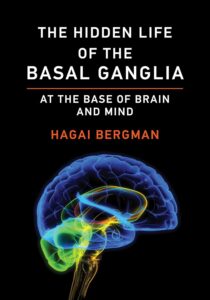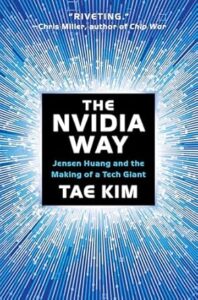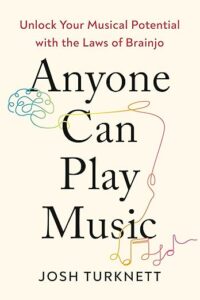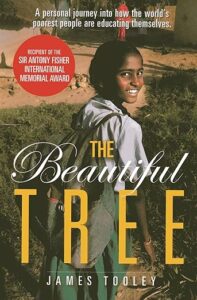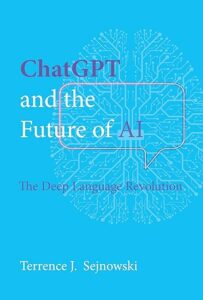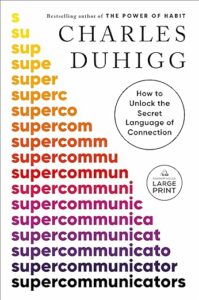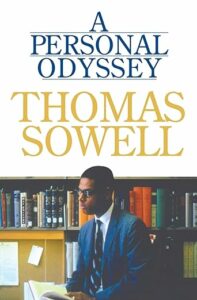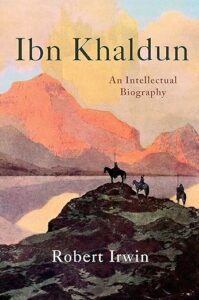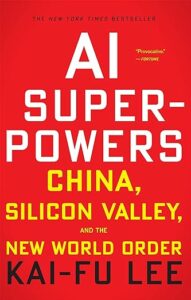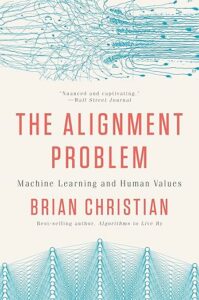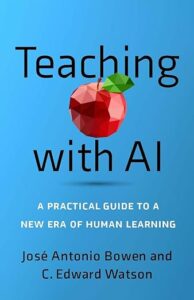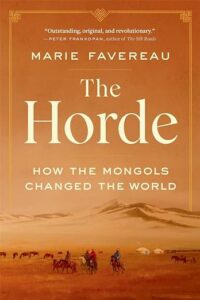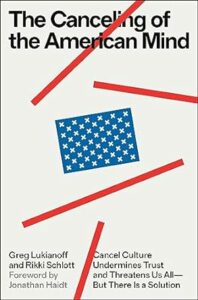Recommendations
Discover my recent book recommendations below, or explore the full searchable recommendations archive.
Why We Have Two Learning Systems: Max Bennett Made This Click
By Max Bennett
Recommended on: 4th January 2026
One book that really got my gears turning this month was A Brief History of Intelligence by Max Bennett. What I appreciated most was how clearly it laid out why we have two fundamentally different learning systems—an older, model-free system for fast, automatic behavior, and a newer, model-based system for deliberate planning and simulation. Bennett doesn’t just describe them—he explains their evolutionary logic. The model-free system evolved first because it’s efficient: it repeats what worked before. The model-based system came later, letting us imagine possible futures before acting. What clicked for me was how this distinction maps onto everyday learning. Much of schooling aims at building the slow, deliberative capabilities we prize—things like reasoning, abstraction, or transfer. But when working memory gets overloaded, the brain defaults to the model-free system. That means students may fall into habits or superficial strategies even when we think we’re fostering deep understanding. Bennett’s evolutionary lens helped clarify why that happens—and why guidance and structure matter so much more than we often assume. [Hat tip: Brandon Hendrickson of Science is Weird.]
MORE INFORMATION FROM AMAZON.COM >Order Why We Have Two Learning Systems: Max Bennett Made This Click
You can order Why We Have Two Learning Systems: Max Bennett Made This Click, using a retailer below
Mental Models: How understanding the mind can transform how you work and learn
By Jim Heal & Rebekah Berlin
Recommended on: 17th October 2025
Book of the Week: Mental Models: How understanding the mind can transform how you work and learn, by Jim Heal & Rebekah Berlin
I had the good fortune to meet Dr. Jim Heal at the researchEd conference in Santiago, Chile a few days ago. Jim is a rare and intuitive expert at translating deep research into practically-useful “on-the-job” insights—his presentation was so compelling that I immediately found myself digging into his and Rebekah Berlin’s compelling book Mental Models. Ever wondered how to best mentor a gaggle of new interns in learning new skills that you know how to do, but don’t even know how to put into words? Jim and Rebekah’s book lays it all out, and far, far more: how to help learns create rich, accessible libraries (neural schemas) in their brains; how to make their learning “sticky,” how to structure and sequence ideas for best retention. Whether you’re a leader, a professional, or an educator of any kind, you’ll find rich resources in this book. Highly recommended.
MORE INFORMATION FROM AMAZON.COM >Order Mental Models: How understanding the mind can transform how you work and learn
You can order Mental Models: How understanding the mind can transform how you work and learn, using a retailer below
Emperor of China: Self-Portrait of K’ang-Hsi
By Jonathan Spence
Recommended on: 28th September 2025
Emperor of China: Self-Portrait of K’ang-Hsi by Jonathan Spence
This book is a marvel. A centuries-old ruler, K’ang-Hsi of the Qing dynasty, narrates the complexities of running an empire in his own words—and you find yourself nodding along, thinking, “Oh wow, this is just like today!”
Based on the emperor’s own writings, Jonathan Spence doesn’t just tell you what K’ang-Hsi did—he lets you feel what it meant to be him. It’s a masterclass in perspective. You’re dropped into a palace buzzing with memorials, corruption investigations, wayward sons, natural disasters, and heartfelt attempts to be a good ruler in a turbulent world. And it turns out that governance is still governance—even when you’re wearing a dragon robe instead of a suit and tie.
It’s easy to imagine K’ang-Hsi as a lonely figure—commanding enormous power yet earnestly trying to stay grounded in Confucian values and the mandate of Heaven. His reflections on education, fairness, discipline, and especially family, are startlingly current. You start to wonder: if you plopped him into the present day, handed him a smartphone and a few prompt engineering tips, could he run a GenAI-powered state dashboard better than most modern leaders?
And for those of us intrigued by how leadership evolves, this book feels like a gentle reminder: new technologies don’t erase old dilemmas—they just repackage them. A governing algorithm might flag inefficiencies or help optimize supply chains, but it still can’t resolve a jealous son or a scheming courtier. That’s all very…human.
In short: if you’re curious about history that feels alive, reflective, and quietly resonant with our modern challenges (and even our tech dilemmas), this slim volume will leave you thinking long after you put it down. It’s perfect for your Friday wind-down—or maybe your next AI ethics discussion group.
MORE INFORMATION FROM AMAZON.COM >Order Emperor of China: Self-Portrait of K’ang-Hsi
You can order Emperor of China: Self-Portrait of K’ang-Hsi, using a retailer below
Reforming Lessons
By Nick Gibb
Recommended on: 12th August 2025
Book of the Year: Reforming Lessons
If you want a powerful, uplifting read about how to turn a struggling education system around — despite the drag of “well-meaning” but harmful inertia — pick up Nick Gibb and Robert Peal’s Reforming Lessons: Why English Schools Have Improved Since 2010 and How This Was Achieved . Fifteen years ago, England’s schools were in a sorry state. Students were underperforming badly compared with their peers in Singapore and Shanghai, and the air was thick with excuses. The idea of lifting an entire country’s educational performance felt like wishful thinking. But during his ten years as Schools Minister, Nick Gibb — along with like-minded colleagues — did something remarkable: they pushed England sharply upward in international measures like PIRLS and PISA.
The transformation didn’t come from catchy slogans or another layer of bureaucratic “innovation.” It came from visiting classrooms, listening to teachers, and then looking squarely at what the best research showed. The verdict was blunt: teachers were being trained to use progressive teaching methods that sound compassionate but in practice make it harder for students to learn. The reforms loosened schools from state “guidance” that pushed those ineffective approaches and opened pathways for teacher training outside the narrow confines of university faculties steeped in the same ideology. Freed from the dogma mills, schools embraced evidence-based methods — and the gains in reading and mathematics have been striking.
Reforming Lessons isn’t just a policy manual; it’s an encouraging, clear-eyed account of how real reform can be done — intelligently, at scale, and with lasting results. It’s a reminder that standing up to entrenched but misguided orthodoxy is worth the effort, and that when educators are trusted to use methods that actually work, students thrive. England’s turnaround shows what’s possible.
MORE INFORMATION FROM AMAZON.COM >Smart Teaching Stronger Learning
By Pooja K. Agarwal
Recommended on: 6th August 2025
Ever wish you could gather ten of the world’s most delightful cognitive scientists around a campfire and say, “Okay, tell me exactly what you do that actually works in your classroom”? That’s pretty much what Pooja K. Agarwal has pulled off with Smart Teaching Stronger Learning. From retrieval practice to spaced learning to clearing out those persistent neuromyths, every chapter is like a pocket-sized gift of wisdom from teachers who also happen to be researchers. And the best part? It’s research that’s been tested in the beautiful chaos of real classrooms — not just in sterile labs. It’s short, practical, and wonderfully human. This is a book I’ll be revisiting often — and one I wish I’d had in hand years ago. Bravo, Pooja!
MORE INFORMATION FROM AMAZON.COM >Order Smart Teaching Stronger Learning
You can order Smart Teaching Stronger Learning, using a retailer below
Doctored: Fraud, Arrogance, and the Tragedy of Alzheimer’s
Recommended on: 29th July 2025
Doctored: Fraud, Arrogance, and the Tragedy of Alzheimer’s
A sobering must-read on science gone wrong
If you’ve ever wondered why, after decades of research and billions of dollars, we still don’t have a truly effective treatment for Alzheimer’s, Doctored: Fraud, Arrogance, and the Tragedy of Alzheimer’s offers an unsettling but essential explanation.
Charles Piller—a top-notch investigative journalist—walks us through how a shaky idea (the “amyloid hypothesis”) came to dominate Alzheimer’s research for over 20 years. But the real kicker? Some of the most-cited studies backing that idea appear to be fraudulent. We’re not talking honest mistakes here—think digitally altered images, data manipulation, and institutional indifference on a scale that’s hard to believe… until you see the receipts.
Piller doesn’t write with malice—he writes with care. And what makes this book so important is that it lays bare not just the scientific misconduct, but also the real-world consequences: promising research avenues shut down, funding funneled in the wrong directions, and families left hoping for treatments that were built on sand.
This isn’t a feel-good read—but it’s an urgently necessary one. If we want better science—and in this case, better hope for those affected by Alzheimer’s—we have to be willing to look squarely at what’s gone wrong.
MORE INFORMATION FROM AMAZON.COM >Order Doctored: Fraud, Arrogance, and the Tragedy of Alzheimer’s
You can order Doctored: Fraud, Arrogance, and the Tragedy of Alzheimer’s, using a retailer below
The Hidden Life of the Basal Ganglia
By Hagai Bergman
Recommended on: 21st February 2025
The Hidden Life of the Basal Ganglia by Hagai Bergman. If you’ve ever wondered about the backstage crew running the show of your everyday thoughts and actions, The Hidden Life of the Basal Ganglia is a fascinating peek behind the curtain. Hagai Bergman takes readers deep into this underappreciated yet essential brain region, revealing its role in one of our most crucial learning systems—habitual, non-conscious learning.
One of the delights of this book is Bergman’s use of metaphor, making the complexity of basal ganglia circuits surprisingly intuitive. My favorite? The striatum as the melody of a piano, and the subthalamic nucleus as the pedal—beautifully illustrating how these structures interact to shape our behavior. The striatum, the brain’s primary hub for processing incoming information, is like the pianist’s hands on the keys, selecting and refining actions based on experience. Meanwhile, the subthalamic nucleus (STN) acts like the sustain pedal, momentarily amplifying or inhibiting actions, helping to fine-tune movement and decision-making by adding a crucial layer of control. Too much or too little engagement of these structures, and the melody—our fluid execution of learned behaviors—gets disrupted.
The basal ganglia, often relegated to discussions of movement disorders, emerge in this book as key players in decision-making, learning, and even emotion. Bergman’s insights help illuminate how we automate skills—from playing an instrument to making split-second choices—without needing conscious oversight. If you’re fascinated by neuroscience, psychology, or just how your brain quietly learns without you realizing it, The Hidden Life of the Basal Ganglia is a deeply rewarding read. Highly recommended!
MORE INFORMATION FROM AMAZON.COM >Order The Hidden Life of the Basal Ganglia
You can order The Hidden Life of the Basal Ganglia, using a retailer below
The Nvidia Way: Jensen Huang and the Making of a Tech Giant
By Tae Kim
Recommended on: 3rd January 2025
If ever there was a guide to turning sheer grit into groundbreaking greatness, The Nvidia Way is it! This exhilarating book dives into the story of Nvidia, the company that has become a crown jewel in the AI revolution.
Tech writer Tae Kim has penned a modern classic of business history, taking us deep into the mind of Jensen Huang, Nvidia’s iconic co-founder and CEO. The book captures Huang’s unconventional yet razor-sharp leadership style, his boundless resilience, and the tenacity that propelled Nvidia from a scrappy startup born in a Denny’s to a global tech giant.
Kim offers vivid, often surprising insights into Nvidia’s journey—how its GPUs, once the darlings of gamers, evolved into the backbone of artificial intelligence, revolutionizing industries from medicine to science. And there are deep insights about Huang’s leadership—his public accountability strategy, the innovative “flat cylinder” organizational structure, and his obsession with always staying 30 days ahead of disaster.
Whether you’re an entrepreneur, a manager, or simply fascinated by what makes visionary companies tick, this book is a treasure trove of lessons and inspiration. Kim’s storytelling is as sharp as a newly minted GPU, blending tech, business, and human drama into a page-turner you won’t want to put down.
In short, The Nvidia Way is a masterclass in the power of visionary leadership. Highly, highly recommended!
MORE INFORMATION FROM AMAZON.COM >Order The Nvidia Way: Jensen Huang and the Making of a Tech Giant
You can order The Nvidia Way: Jensen Huang and the Making of a Tech Giant, using a retailer below
Anyone Can Play Music
By Josh Turknett
Recommended on: 30th October 2024
I’m tickled to share a gem of a book with you—Anyone Can Play Music by neurologist and musician Josh Turknett! What makes this book special is how brilliantly Josh connects cutting-edge neuroscience with practical learning strategies. He explains how our automatic learning system (what he calls our “zombie subroutines”) works in the basal ganglia to create those wonderful automatic movements we need not just for music, but for any skill we’re trying to master. Josh’s insights about avoiding dependency on reading music and building true fluency by listening form uniquely counterintuitive, but useful learning insights. As both a neuroscientist-physician and accomplished musician, Josh brings a unique triple expertise that makes his teaching truly extraordinary. If you’ve ever thought you were “too old” or “not talented enough” to learn music—or anything else—this book will change your mind!
MORE INFORMATION FROM AMAZON.COM >The Trouble with Ed Schools
By David Labaree
Recommended on: 14th September 2024
This month, we dug into David Labaree’s The Trouble with Ed Schools. If you are a parent or teacher of K-12 children, you will find Labaree’s book to be invaluable in helping you understand why the modern US K-12 system is the way it is. He makes a clear case that American education schools are fundamentally outdated due to their lack of integration of modern scientific insights.
Dr. Labaree argues that these institutions have been overly focused on certifying teachers rather than pushing the envelope with teaching methods that are informed by current research. Labaree’s book is a clarion call for education schools to revamp their approaches and curriculum to not only keep pace with, but also lead in, the application of new scientific insights that could revolutionize teaching and learning–as with the visionary approaches of Lake Superior Academy.
The Trouble with Ed Schools encourages us to rethink how teachers are trained and challenges us to envision a future where education is as dynamic and evidence-based as the best scientific fields.
MORE INFORMATION FROM AMAZON.COM >The Beautiful Tree: A Personal Journey Into How the World’s Poorest People Are Educating Themselves
By James Tooley
Recommended on: 19th August 2024
The Beautiful Tree: A Personal Journey Into How the World’s Poorest People Are Educating Themselves, by James Tooley. This eye-opening book challenges conventional wisdom about education in the developing world. Tooley, a professor of education policy, uncovers a hidden revolution: low-cost private schools serving some of the world’s poorest communities.
Through extensive on-the-ground research in countries like India, China, and Africa, Tooley reveals vibrant educational ecosystems that government officials and international aid organizations often overlook or deny exist. He finds dedicated teachers and entrepreneurs running small schools that outperform government alternatives, all without outside funding.
Tooley’s engaging prose brings to life the people he meets, from ambitious students to innovative school operators. He thoughtfully explores why families living on a few dollars a day choose to pay for education when free government schools are available. The answers provide insight into both human nature and effective education policy.
While celebrating these grassroots successes, Tooley also highlights the obstacles private schools for the poor face, including hostile bureaucracies and well-meaning but misguided international aid efforts. The book makes a compelling case for empowering local communities rather than imposing top-down solutions.
The Beautiful Tree offers an uplifting perspective on addressing global poverty through education. It’s a must-read for anyone interested in international development, education policy, or inspiring stories of human resilience and ingenuity in the face of adversity.
MORE INFORMATION FROM AMAZON.COM >Order The Beautiful Tree: A Personal Journey Into How the World’s Poorest People Are Educating Themselves
You can order The Beautiful Tree: A Personal Journey Into How the World’s Poorest People Are Educating Themselves, using a retailer below
ChatGPT and the Future of AI: The Deep Language Revolution
By Terrence J. Sejnowski
Recommended on: 29th July 2024
ChatGPT and the Future of AI: The Deep Language Revolution by Terrence J. Sejnowski. Our very own Terry’s latest masterpiece is a thrilling journey into the heart of AI. From the evolution of language models to the ethical dilemmas of self-improving algorithms, Terry guides us with clarity and wit. He draws fascinating parallels between human and artificial intelligence, offering profound insights into the future of machine learning. Whether you’re an AI novice or a tech enthusiast, this book illuminates the transformative power of AI in science and society. Terry’s unique blend of expertise and accessible writing makes complex concepts engaging and thought-provoking. ChatGPT and the Future of AI isn’t just informative—it’s a glimpse into a future where AI reshapes our world in ways we’re only beginning to imagine. A must-read for anyone curious about the AI revolution unfolding before our eyes.
MORE INFORMATION FROM AMAZON.COM >Order ChatGPT and the Future of AI: The Deep Language Revolution
You can order ChatGPT and the Future of AI: The Deep Language Revolution, using a retailer below
Supercommunicators
By Charles Duhigg
Recommended on: 24th July 2024
Supercommunicators: How to Unlock the Secret Language of Connection, by Charles Duhigg. From the author of The Power of Habit comes another masterpiece that will transform how you think about communication and human connection. Duhigg’s core insight is that every interaction involves three distinct types of conversations happening simultaneously – practical (“What’s this really about?”), emotional (“How do we feel?”), and social (“Who are we?”). By recognizing and skillfully navigating these layers, anyone can dramatically improve their ability to connect with others.
What sets this book apart is Duhigg’s masterful storytelling. He takes us inside a deadlocked jury room, alongside a CIA officer recruiting an agent, and into a surgeon’s office as they struggle to convince patients. Through these vivid scenes, abstract communication principles come alive.
But Supercommunicators is far more than just an entertaining read. Duhigg provides a wealth of actionable advice you can immediately apply. You’ll learn how to identify conversation types, overcome common pitfalls, uncover hidden emotions and values, build rapport in challenging situations, and craft messages that resonate on multiple levels.
What we love most is how this book champions genuine human connection. This isn’t about manipulation, but developing the awareness and skills to truly understand others and be understood in return. In a world of increasing polarization, these are invaluable tools.
Whether you’re looking to improve relationships, enhance leadership abilities, or simply become more empathetic, Supercommunicators offers invaluable wisdom. Highly recommended!
MORE INFORMATION FROM AMAZON.COM >A Personal Odyssey
By Thomas Sowell
Recommended on: 15th July 2024
A Personal Odyssey, by Thomas Sowell. This fascinating autobiography provides a compelling look at the life and intellectual development of one of America’s most important and incisive thinkers. Sowell traces his remarkable journey from poverty in the Jim Crow South to becoming a renowned economist, writer, and social theorist. With his characteristic sharp analysis and independent thinking, Sowell reflects on pivotal experiences that shaped his worldview – from his childhood in Harlem to his time in the Marine Corps to his academic career studying under luminaries like Milton Friedman. What emerges is a portrait of a fiercely intelligent, principled, and uncompromising scholar who has never been afraid to challenge conventional wisdom. Sowell’s wry humor and keen observations make for an engaging read, while providing invaluable context for understanding the evolution of his influential ideas on race, economics, and society. This deeply personal account offers insight into not just Sowell’s life, but also the dramatic social changes of 20th century America. A must-read for anyone interested in the power of education, independent thinking, and intellectual courage to transform a life and impact a nation.
MORE INFORMATION FROM AMAZON.COM >Ibn Khaldun: An Intellectual Biography
By Robert Irwin
Recommended on: 15th July 2024
Ibn Khaldun: An Intellectual Biography, by Robert Irwin. This fascinating book provides a comprehensive look at the life and ideas of Ibn Khaldun, a 14th-century Arab scholar considered one of the greatest intellectuals in Islamic history. Irwin skillfully places Ibn Khaldun in his historical and intellectual context, examining how his groundbreaking Muqaddima analyzed the laws of history and anticipated developments in fields like sociology and economics centuries ahead of his time. At the same time, Irwin pushes back against attempts to depict Ibn Khaldun as a modern thinker, showing how he was very much a product of his medieval Islamic world – a mystic interested in occultism and futurology. The book provides an engaging account of Ibn Khaldun’s tumultuous life and career in North Africa and Muslim Spain, while also tracing how his ideas have been interpreted and misinterpreted over the centuries. Irwin’s deep knowledge and lively writing make this an enlightening intellectual biography of a brilliant but often misunderstood thinker. Highly recommended for anyone interested in Islamic intellectual history or the development of historical and social thought.
MORE INFORMATION FROM AMAZON.COM >Order Ibn Khaldun: An Intellectual Biography
You can order Ibn Khaldun: An Intellectual Biography, using a retailer below
AI Superpowers: China, Silicon Valley, and the New World Order
By Kai-Fu Lee
Recommended on: 7th July 2024
Book of the Month
AI Superpowers: China, Silicon Valley, and the New World Order, by Kai-Fu Lee. This fascinating book provides an insider’s perspective on the AI race between China and the United States. Lee, a prominent figure in both Silicon Valley and the Chinese tech world, offers unique insights into the strengths and strategies of each country’s approach to AI development. One of the book’s strengths is Lee’s balanced perspective, acknowledging both the strengths and weaknesses of the American and Chinese approaches. His personal experiences, having worked in both environments, lend credibility to his comparisons.
The book begins with a compelling analysis of China’s rapid rise in AI capabilities, challenging common Western perceptions. Lee argues that China’s advantages lie in its vast data resources, entrepreneurial drive, and government support. He provides vivid examples of the fierce competition and “copycat” culture in China’s tech scene, painting a picture of an ecosystem primed for AI innovation.
Lee’s exploration of the four waves of AI adoption – Internet AI, Business AI, Perception AI, and Autonomous AI – offers a clear framework for understanding how AI will reshape various industries. His predictions about job displacement due to AI are sobering but thoughtful, encouraging readers to consider the broader societal implications of this technological revolution.
The latter part of the book takes an unexpected turn as Lee reflects on his battle with cancer and subsequent shift in perspective. While his emphasis on the importance of love and human connection in an AI-driven world is heartfelt, it’s worth noting that such a rapid pivot to “love” as a solution, without deeper exploration of how it can also be used as a hook to harm, could be seen as overly simplistic. Similarly, Lee’s suggestion that deep expertise may become less necessary in an AI-dominated world is intriguing but potentially problematic. As our work on pathological altruism has shown, well-intentioned but oversimplified solutions can sometimes lead to unintended negative consequences.
While the book’s exploration of sensitive topics related to China’s policies is understandably constrained, it still offers a rare glimpse into the contrasting worldviews shaping AI development in the world’s two largest economies. Lee’s work serves as an important contribution to our understanding of the broader AI landscape and the challenges and opportunities that lie ahead.
MORE INFORMATION FROM AMAZON.COM >Order AI Superpowers: China, Silicon Valley, and the New World Order
You can order AI Superpowers: China, Silicon Valley, and the New World Order, using a retailer below
The Alignment Problem: Machine Learning and Human Values
By Brian Christian
Recommended on: 13th June 2024
The Alignment Problem: Machine Learning and Human Values, by Brian Christian, is a surprising contender for the most important book on learning of the decade. Christian tackles the complex challenge of ensuring that artificial intelligence remains aligned with human values as it grows more powerful.
The book masterfully weaves together insights from computer science, psychology, ethics, and more. Christian delves into key machine learning approaches and their implications for alignment, including:
- Reinforcement learning, where AI agents learn to take actions that maximize their rewards in an environment. Christian explains how difficult it is to specify reward functions that capture the full nuance of human values.
- Inverse reinforcement learning, which flips this problem by inferring the reward function an agent is optimizing from its observed behavior. This could allow AI to learn human values by watching what we do, rather than requiring us to specify them explicitly.
- Curiosity-driven learning techniques like empowerment and information gain, which motivate AI systems to explore and learn about the world without explicit rewards. This highlights the challenge of making sure AI pursues the right objectives.
- Cutting-edge approaches to better specify and pursue human preferences, even when they’re complex or uncertain:
- Reward modeling, where AI tries to approximate the true reward function a human wants to optimize.
- Inverse reward design, which accounts for the difficulty of translating values into concrete rewards.
- Debate, where AI systems argue to surface flaws and refine their understanding of human values.
- Cooperative inverse reinforcement learning and iterated amplification, where AI and humans collaborate to clarify and pursue the human’s goals.
Christian highlights both the promise and perils of these techniques, from the risk of encoding biases to the challenge of avoiding unintended consequences.
The Alignment Problem is a critical framework for understanding the future of AI and its profound implications for humanity. Christian’s exploration of the frontiers of machine learning and the ethical quandaries they raise make the book essential reading. It’s a landmark work, not just for AI, but for understanding how we learn and create in an age where neural nets shape more and more of our lives. The Alignment Problem is an intellectual tour de force and a must-read for anyone seeking to grasp one of the defining challenges of our time.
MORE INFORMATION FROM AMAZON.COM >Order The Alignment Problem: Machine Learning and Human Values
You can order The Alignment Problem: Machine Learning and Human Values, using a retailer below
Teaching with AI: A Practical Guide to a New Era of Human Learning
By José Antonio Bowen and C. Edward Watson
Recommended on: 2nd June 2024
Teaching with AI: A Practical Guide to a New Era of Human Learning by José Antonio Bowen and C. Edward Watson is a timely and essential guide for educators navigating the rapidly evolving landscape of artificial intelligence in education. The authors provide a comprehensive overview of the current state of AI, its potential applications in teaching and learning, and the practical strategies educators can employ to harness its power effectively.
One of the book’s greatest strengths is its ability to demystify AI and make its complexities accessible to a broad audience. Bowen and Watson skillfully break down the technical jargon and provide clear explanations of key concepts such as machine learning, neural networks, and large language models. This foundational understanding is crucial for educators seeking to integrate AI into their teaching practice, as well as those in business looking to gain a practical understanding of what generative AI can do.
While the book is optimistic about the potential of AI in education, it does not shy away from addressing the challenges and ethical considerations that come with its adoption. The authors tackle thorny issues such as academic integrity, algorithmic bias, and the need for policies that ensure the responsible use of AI. They offer thoughtful recommendations for navigating these challenges while still reaping the benefits of this transformative technology.
Overall, “Teaching with AI” is an indispensable resource for educators and people in general seeking to understand and harness the power of artificial intelligence. Bowen and Watson’s engaging prose, practical insights, and forward-thinking vision make this book a must-read for anyone committed to preparing students for success in an AI-driven world. As the authors aptly note, “It is the job of educators to help students become better thinkers. Our new job is to help them become even better thinkers with AI.” This book is an essential guide for rising to that challenge.
MORE INFORMATION FROM AMAZON.COM >Order Teaching with AI: A Practical Guide to a New Era of Human Learning
You can order Teaching with AI: A Practical Guide to a New Era of Human Learning, using a retailer below
The Horde: How the Mongols Changed the World
By Marie Favereau.
Recommended on: 22nd May 2024
The Horde: How the Mongols Changed the World by Marie Favereau. Marie Favereau’s The Horde is a captivating and meticulously researched work that offers a sweeping reexamination of the Mongol Empire. Far from the simplistic portrayal of the Mongols as ruthless conquerors, Favereau presents a nuanced and sophisticated understanding of this complex civilization.
The book’s greatest strength lies in Favereau’s ability to transport the reader beyond the familiar anecdotes of Genghis Khan’s military exploits. She deftly weaves together the cultural, political, and economic intricacies of the Mongol Horde, unveiling a truly remarkable story of how this nomadic society managed to build and maintain dominion over vast swaths of Eurasia.
One of the key insights Favereau presents is the Horde’s remarkable ability to govern its diverse subjects through a system of indirect rule. By embracing religious and cultural pluralism, the Mongols were able to effectively incorporate conquered territories into their sprawling empire, a feat that often eludes more rigidly centralized powers.
Furthermore, the author’s exploration of the Horde’s economic prowess is particularly illuminating. Through their mastery of trade networks and financial innovations, the Mongols created a level of economic integration and prosperity across their domains that was unprecedented for the time.
While the book does not shy away from the brutality that accompanied the Mongol conquests, Favereau skillfully avoids painting a one-dimensional portrait. Instead, she encourages the reader to grapple with the complex legacy of the Horde, acknowledging both its destructive and constructive aspects.
Overall, “The Horde” is a tour de force, a work that challenges preconceptions and offers a fresh, nuanced understanding of one of history’s most formidable empires. Favereau’s meticulous research and engaging prose make this book a must-read for anyone interested in exploring the rich and multifaceted history of the Mongol civilization.
MORE INFORMATION FROM AMAZON.COM >Order The Horde: How the Mongols Changed the World
You can order The Horde: How the Mongols Changed the World, using a retailer below
The Canceling of the American Mind
By Greg Lukianoff and Rikki Schlott
Recommended on: 22nd May 2024
The Canceling of the American Mind, by Greg Lukianoff and Rikki Schlott. In their searing exposé The Canceling of the American Mind, free speech advocates Greg Lukianoff and Rikki Schlott shine a light on the alarming rise of cancel culture and its corrosive effects on American society. Building on themes from Lukianoff (and Haidt’s) previous work, The Coddling of the American Mind, the authors meticulously document how a culture of censorship and conformity is stifling open debate and intellectual diversity.
Central to their analysis is the proliferation of “cancellations” – the targeted campaigns to silence, shame, and ostracize individuals for expressing controversial or unpopular opinions. Through a series of vivid case studies, Lukianoff and Schlott illustrate how these tactics are being deployed across academia, media, politics, and beyond. From professors fired for provocative tweets to speakers de-platformed for challenging orthodoxies, the examples are as chilling as they are numerous.
But the authors go beyond merely cataloging offenses. They incisively trace the ideological roots of cancel culture to the rise of critical theory and postmodernism in the academy. By rejecting objective truth and elevating subjective experience, these philosophies have fostered a climate of grievance and victimhood that is antithetical to free and open inquiry. At the same time, Lukianoff and Schlott are careful not to paint with too broad a brush, noting that cancellations come from both the left and the right.
Threaded throughout the book is a passionate defense of classical liberal values – free speech, due process, viewpoint diversity. The authors convincingly argue that these principles are not just abstract ideals, but essential guardrails for a functioning democracy. Without the ability to freely express and debate ideas, society stagnates and fractures.
While some may find the authors’ critique of progressivism discomfiting, their arguments are fair-minded and copiously sourced. The Canceling of the American Mind is a clarion call for anyone who values the free exchange of ideas. In an age of suffocating conformity, this brave and bracing book is an urgent read. It will no doubt spark heated debate and discussion – which is precisely the point.
MORE INFORMATION FROM AMAZON.COM >Explore the full searchable recommendations archive.
This site directs people to Amazon and is an Amazon Associate member.

